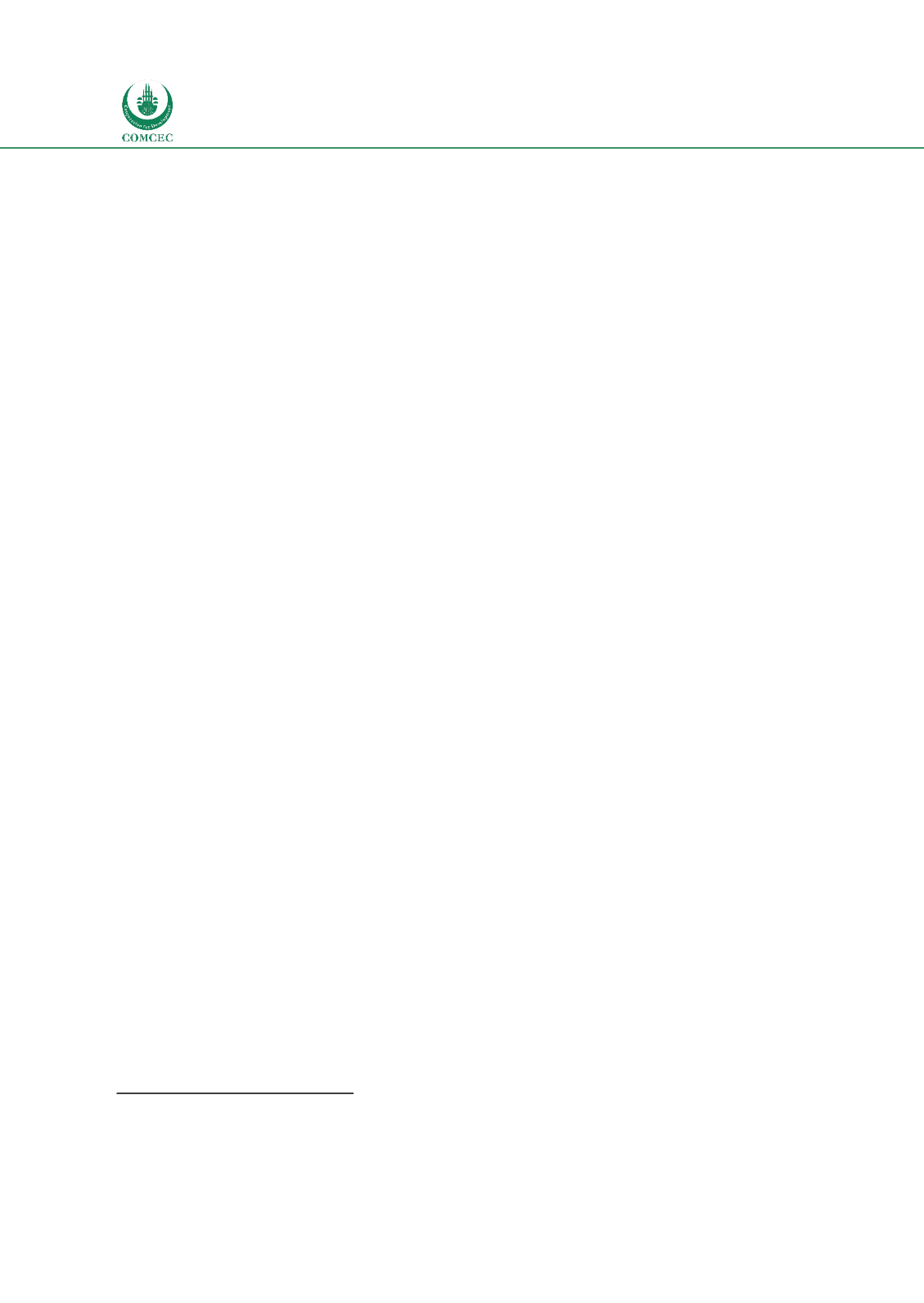

Muslim Friendly Tourism:
Developing and Marketing MFT Products and Services
In the OIC Member Countries
128
company Thomas Cook has successfully used virtual reality which resulted in boosting sales
by 190 percent. Virtual Reality experts expect a boom in this technology within the next few
years and that companies that embrace the technology now will have the ability to create
simulated travel experiences that can act as a teaser for the real thing.
323
Similarly,
destinations that wish to promote themselves as Muslim-friendly can utilize Virtual Reality to
provide tours of their Islamic heritage sites. Hotels and resorts can offer a Virtual Reality tour
of their facility focusing on their MFT features.
Mobile Marketing:
IClick Interactive, a digital marketing company focused on the Chinese
market, targets young digitally savvy Chinese travellers through WeChat which is a popular
messaging app with Chinese millennials.
324
Similarly, accommodation businesses that wish to
accommodate the MFT market, can provide their guests with MFT related information and
services through Whatsapp or a similar application.
Apps:
MFT apps help Muslims locate restaurants that serve Halal food in addition to prayer
spaces and MFT hotels. For apps to be successful, it’s important that their listings are
comprehensive. Survey responses indicated that Muslim travellers were interested in mobile
apps that provide information on MFT locations.
Public Relations
Press releases, trade shows, and familiarization (FAM) trips are common public relations
activities used by both mainstream and MFT businesses. However, mainstream suppliers are
much more active in using influencers such as travel bloggers.
There are very few travel bloggers focused on the Muslim market. Muslim Travel Girl is a
blog, run by UK-based Elena Nikolova, which reviews Muslim-friendly destination and
provides travel tips. Singapore-based Have Halal Will Travel is travel website for Muslims run
by four bloggers. Muslim Travelers is run by a couple based in the United States. Few Muslim
travel brands are working with bloggers and influencers to engage their audiences. Those
who do, such as Serendipity Tailormade, work with food bloggers such as UK-based Halal
Gems as they find they have the same target market.
325
Influencer campaigns
. Social media campaigns that feature influencers who have a large
following are effective in garnering audience engagement. Indonesia worked with bloggers from
Malaysia and Singapore to promote itself as an MFT destination. Similarly, Spain worked with
television celebrities fromMalaysia to promote its MFT attractions and services.
In Spain, the Seville Mosque Foundation worked with four female Malaysian celebrities to
promote Spain as a Muslim-friendly destination. The campaign involves taking the celebrities on
a tour through several cities in Spain, while recording it on video. The celebrities will in turn post
short 2 to 3 minute videos, once a week, for the duration of six month on their social media
accounts, which combined, have several million followers.
323
El Shafaki, Reem. "Is Virtual Reality the next Big Marketing Tool for Muslim-friendly Tourism?" Salaam Gateway. N.p., 14
Feb. 2016. Web.
324
Loras, Sophie. "How China’s 100 Million Tourists Are Reshaping Marketing Strategies." ClickZ. N.p., 9 May 2016. Web.
325
From interview with Nabeel Sharrif, Founder, Serendipity Tailormade and Luxury Halal Travel, April, 2016.
















